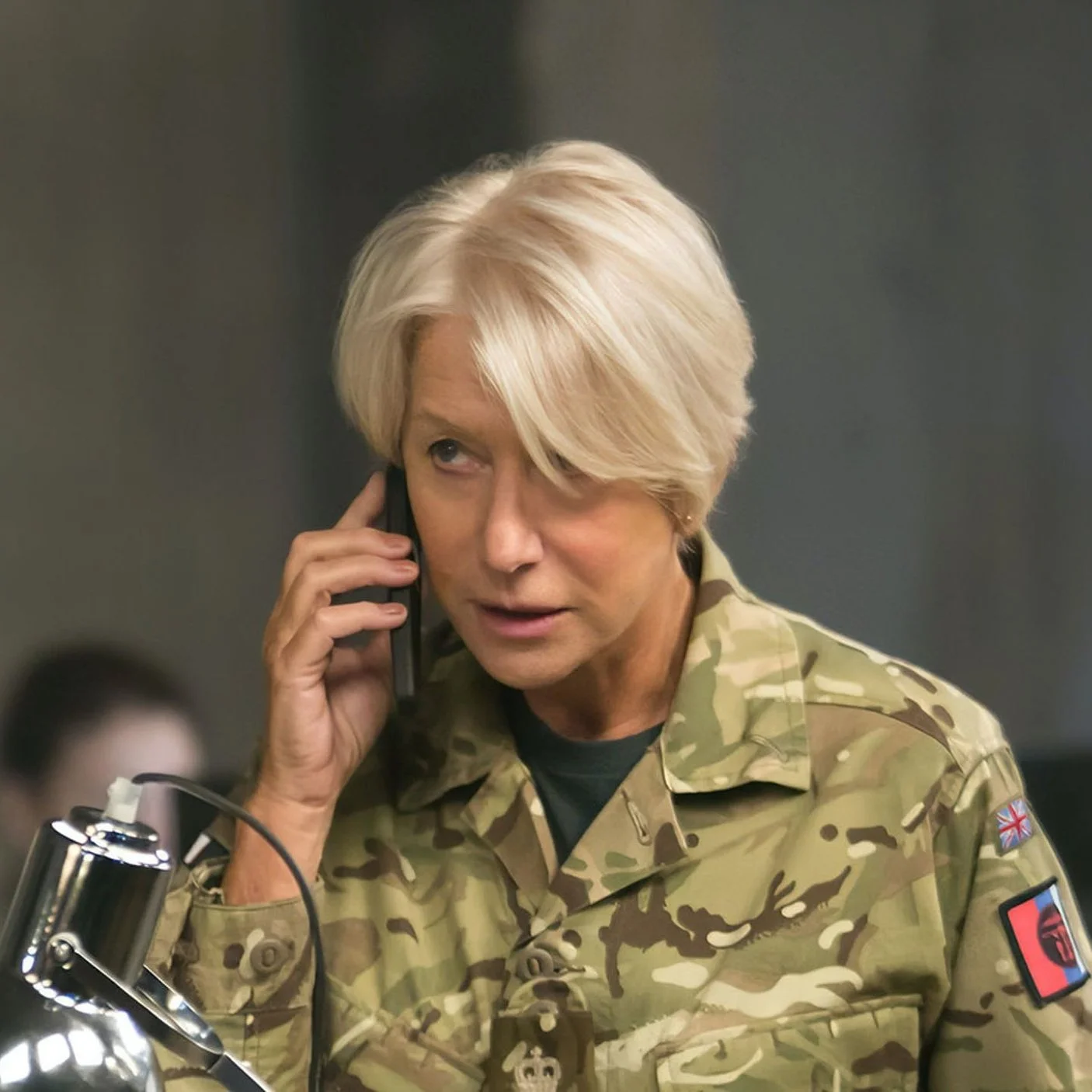Mansel Stimpson Looks Back at the Year of 2016
In all but two cases my reviews of the films in my top ten can be found on this website, so I will not comment further on them here save to say that I hope that readers unfamiliar with some of the titles will be encouraged to refer back to what I had to say about them. The two titles that I did not review were covered by James Cameron-Wilson, Eye in the Sky (No. 3) and Zootropolis (No. 7) and both I am pleased to note earned a very favourable response from him.
Guy Hibbert who wrote both Eye in the Sky and A United Kingdom (No. 9) was deservedly nominated (one of five) for the London Critics' Circle Film Awards in the category of Breakthrough Artist in the British Film Industry in 2016. In the case of Eye in the Sky, he was working on the second release in recent years that set out to treat seriously the issue of drones being used as weapons of war and, while Good Kill (2014) was well intended, it was Hibbert's screenplay that provided an object lesson in how to handle such material to full dramatic effect. As for Zootropolis, its inventiveness on all levels was a treat providing ideal animated entertainment for both adults and children. At a time when cartoon features are taking on board the way in which women are portrayed on screen, it boasted a perfectly judged heroine who was admirably voiced by Ginnifer Goodwin. I would just add that, although it had no live actor on screen, I was surprised that nobody emphasised the debt that this engaging and highly original work owed to the classic Who Framed Roger Rabbit? (1988).
I take this opportunity to add a few observations on my top ten and on the year generally. As an enthusiast for foreign language films, I felt that it was sadly striking that only one, A War by the Danish director Tobias Lindholm, made it into the ten. There were titles that came very close, notably the gay drama Theo and Hugo and the Japanese animated feature Your Name and among other titles that pleased me I would mention Victoria, The Innocents, Under The Shadow, Our Little Sister and The Measure of a Man. I admired half of Embrace of the Serpent, the technical panache of Almodóvar's Julieta and the performance of Catherine Frot in Marguerite without finding them as successful overall as some of my colleagues did.
When it comes to the acclaimed Holocaust film Son of Saul, its integrity was undoubted but I found its relentless close scrutiny wearing in a way that did not apply to Night and Fog or even to the nine hours of Shoah. Isabelle Huppert had a great year. I was less satisfied than I had hoped to be with Things to Come but, flawed as the storyline was, I found Valley of Love profoundly memorable with Huppert at her very best, and Gérard Depardieu gave a great performance too. In the documentary sphere (which did well in its own right with such American titles as The Eagle Huntress (No. 4) and Tickled and with British contributions such as Notes on Blindness and Versus: The Life and Films of Ken Loach), foreign language titles of note included The Pearl Button, Ingrid Bergman In Her Own Words, the undervalued Magnus (No. 5) and a film that in its range and tone seemed to defy the notion of being categorised in this way, Behemoth (No. 2).
American cinema given its emphasis on blockbusters and on comedies in modern mode aimed primarily at audiences younger than myself is increasingly not to my taste, but it did yield such worthwhile and personal films as Anomalisa, Little Men, the co-productions Love & Friendship and The BFG, The Edge of Seventeen and Hell and High Water. Another successful American production was Queen of Katwe made by Mira Nair, even if its Ugandan setting made it feel anything but American in character. In the case of Nocturnal Animals, I was bowled over by the acting but felt that the screenplay involving in effect three narratives was ill-balanced and so deprived the film of any ultimate emotional impact. James Cameron-Wilson, as his review here confirms, did not share my reservations and many critics regard Tom Ford's film as one of the highlights of the year.
Finally, what does stand out for me was the fact that 2016 was such a good year for British mainstream cinema of quality. I was, of course, decidedly in the minority in feeling that the unreality of the screenplay destroyed any appeal that Florence Foster Jenkins (technically a co-production with France) might have had, but, as will have been noted, my top ten includes no less than four commercial British movies which in their individual ways did triumphantly what they set out to do: Eye in the Sky (No. 3), Swallows and Amazons (No. 6), A United Kingdom (No. 9) and Sing Street (No. 10). Outside the mainstream, but happily edging into it in box office terms, was my No.1 film, Ken Loach's I, Daniel Blake. That was indeed a major achievement, but I conclude with a brave British film close to my top ten which, ignoring popular appeal, dared to give a frank and truthful portrayal of the effects of sepsis. Informative and heartfelt, Starfish was an adaptation of a real-life story and the performances of Joanne Froggatt and Tom Riley were truly exceptional.
Eye in the Sky
Mansel Stimpson’s Favourites:
1 I, Daniel Blake
2. Behemoth
3. Eye in the Sky
4. The Eagle Huntress
5. Magnus
6. Swallows and Amazons
7. Zootropolis
8. A War
9. A United Kingdom
10. Sing Street

